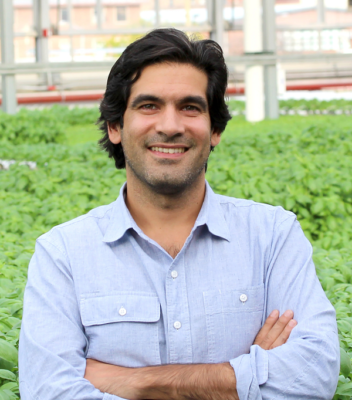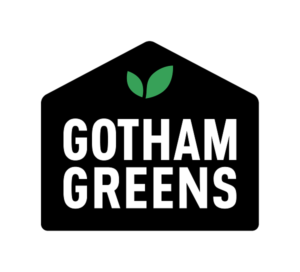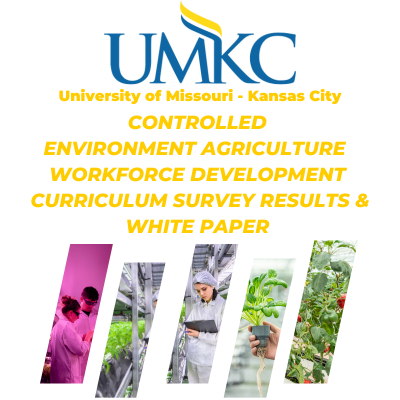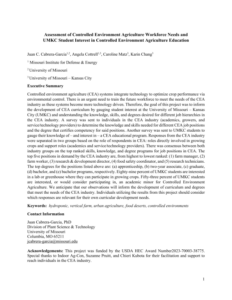USDA Seeks Federal Advisory Committee Members For Urban Agriculture And Innovative Production
The U.S. Department of Agriculture (USDA) is seeking nominations for four positions on the Federal Advisory Committee for Urban Agriculture and Innovative Production. USDA will accept nominations from May 7, 2024, to July 7, 2024. The 12-member Committee, which first convened in March 2022, is part of USDA’s efforts to increase support for urban agriculture and innovative production. Members of the Committee provide input on policy development and help identify barriers to urban agriculture as USDA works to promote urban farming and the economic opportunities it provides in cities across the country.
“The Urban Agriculture and Innovative Production Committee has already submitted more than a dozen recommendations to the Secretary of Agriculture and continues to provide direct feedback to USDA about how to better serve producers and communities,” said Terry Cosby, Chief of USDA’s Natural Resources Conservation Service (NRCS), which oversees USDA’s Office of Urban Agriculture and Innovative Production. “These new members will provide valuable input on innovative production, higher education, the supply chain, and urban farming to guide our programs and policies.”
Members of the Committee include representative from urban and innovative agricultural production, higher education or extension programs, non-profits, business and economic development, supply chain, and financing. Last year, Agriculture Secretary Tom Vilsack appointed four new members to the Committee to replace members whose terms expired. The Committee’s last public meeting was held in April 2024.
Nominations
USDA is seeking nominations for individuals representing a broad spectrum of expertise. Four positions are open for nominations including:
- One individual who is an agricultural producer or farmer using innovative technology.
- One individual representing an institution of higher education or extension program.
- One individual with supply chain experience, which may include a food aggregator, wholesale food distributor, food hub, or an individual who has direct-to-consumer market experience.
- One individual representing related experience in urban, indoor and other emerging agriculture production practices.
Individuals who wish to be considered for membership must submit a nomination package including the following:
- A completed background disclosure form (Form AD-755) (PDF, 2.1 MB) signed by the nominee.
- A brief summary explaining the nominee’s interest in one or more open vacancies including any unique qualifications that address the membership composition and criteria described above.
- A resume providing the nominee’s background, experience, and educational qualifications.
- Recent publications by the nominee relative to extending support for urban agriculture or innovative production (optional).
- Letter(s) of endorsement (optional).
Nomination packages must be submitted by email to UrbanAgricultureFederalAdvisoryCommittee@usda.gov or postmarked by July 6, 2024. If sending by mail, packages should be addressed to USDA NRCS, Attn: Brian Guse, 1400 Independence Avenue SW, Room 4083, Washington, DC 20250. Any interested person or organization may nominate qualified individuals for membership, including self-nominations. For special accommodations, contact Markus Holliday at UrbanAgricultureFederalAdvisoryCommittee@usda.gov.
Additional details are available in the Federal Register notice.
More Information
The Office of Urban Agriculture and Innovative Production was established through the 2018 Farm Bill. It is led by NRCS and works in partnership with numerous USDA agencies that support urban agriculture and innovative production. The Committee is part of a broad USDA investment in urban agriculture and innovative production. Other efforts include:
- Investing $9.1 million for Urban Agriculture and Innovative Production competitive grants in fiscal year 2023.
- Administering the People’s Garden Initiative, which celebrates collaborative gardens across the country and worldwide that benefit their communities by growing fresh, healthy food and supporting resilient, local food systems using sustainable practices and providing greenspace.
- Investing approximately $11.5 million in cooperative agreements that develop and test strategies for planning and implementing municipal compost plans and food waste reduction plans in fiscal year 2023.
- Investing $40 million, made possible by President Biden’s American Rescue Plan, into partnerships with community-based organizations to that will conduct outreach, education and technical assistance to support urban producers.
- Investing in risk management education to broaden reach of crop insurance among urban and innovative producers.
- Organizing 27 FSA urban county committees to make important decisions about how FSA farm programs are administered locally. Urban farmers who participate in USDA programs in the areas selected are encouraged to participate by nominating and voting for county committee members.
- Establishing 17 new Urban Service Centers staffed by FSA and NRCS employees where urban producers can access farm loan, conservation, disaster assistance and risk management programs.
- Partnering with the Vermont Law and Graduate School Center for Agriculture and Food Systems to develop resources that help growers understand and work through local policies.
Learn more at www.usda.gov/urban. For additional resources available to producers, download the Urban Agriculture at a Glance brochure or visit www.farmers.gov/urban.
USDA touches the lives of all Americans each day in so many positive ways. Under the Biden-Harris administration, USDA is transforming America’s food system with a greater focus on more resilient local and regional food production, fairer markets for all producers, ensuring access to safe, healthy, and nutritious food in all communities, building new markets and streams of income for farmers and producers using climate smart food and forestry practices, making historic investments in infrastructure and clean energy capabilities throughout America, and committing to equity across the Department by removing systemic barriers and building a workforce more representative of America. To learn more, visit www.usda.gov.



 Today, Gotham Greens is synonymous with urban agriculture and cutting-edge, sustainable growing practices, and its growth and expansion wouldn’t be done justice without highlighting its rapid ascent in the greenhouse grower market.
Today, Gotham Greens is synonymous with urban agriculture and cutting-edge, sustainable growing practices, and its growth and expansion wouldn’t be done justice without highlighting its rapid ascent in the greenhouse grower market.

